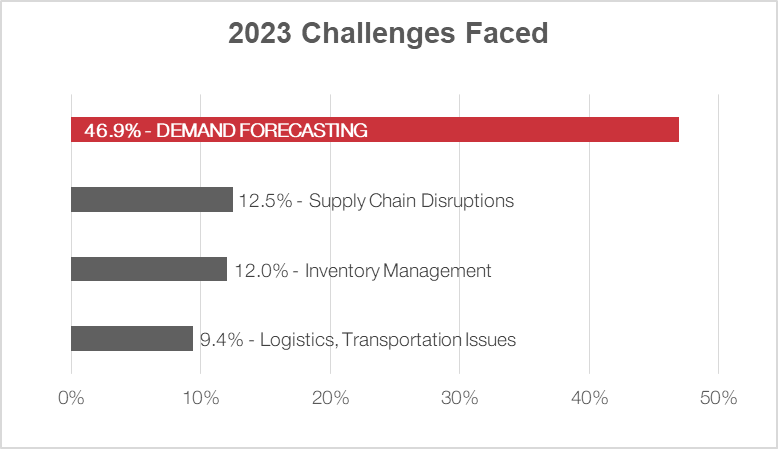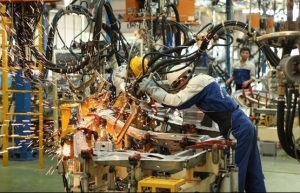Key sustainability areas to drive supply chain groups
Many other industries have already started integrating sustainability within their operations, companies with vast supply chain management function in Vietnam might face more challenges than others.
 |
| Pham Duy Khiem, General manager of Supply Chain Management, DKSH Vietnam |
There are three actionable areas we believe companies that handle supply chain management should focus to advance in their sustainability commitment in emerging markets like Vietnam.
Firstly, transportation contributes significantly to environmental pollution, responsible for 70 per cent of total dust and gas emissions in Vietnam. It is vital for supply chain management companies to pay close attention to routes planning and energy consumption to minimise its emissions to the environment.
DKSH invests its efforts in order combinations, route planning, and vehicle choices to make sure we continue to offer consistent delivery services, guaranteeing reliable access to thousands of high-quality products while optimising energy consumption for every delivery we make.
In Vietnam, our delivery processes adhere to standardised procedures forged through strategic partnerships with local transport providers. Across all our partnerships, we continually advocate for the adoption of eco-friendly vehicles and renewable fuels in their transportation activities. We are also actively negotiating a climate commitment agreement to formulate optimal solutions for environmental protection within the transportation sector.
Presently, we collaborate with local transport vendors on initiatives and resources designed to monitor carbon emissions resulting from vehicle usage. Our delivery operations are optimised through the meticulous examination of factors such as vehicle types, schedules, and delivery routes, all tailored to the volume and frequency of delivery points. This approach enhances our operational efficiency and maximises cost-effectiveness in our delivery endeavours.
Under the sustainable transportation area, besides the environmental aspect, we believe it is vital for every supply chain companies to ensure the safety, health, and wellbeing of the employees, especially when they are on duty. Leaders should have in place preventive actions to avoid work-related injuries. Regular training, general health checks, and realistic on-road working schedules are compulsory for the safety of the employees.
Secondly, reducing the carbon footprint takes a considerate effort to translate from planning to action, given the complexities within the supply chain management sector and the readiness of the market. However, that should not put a stop to any of the sustainability plans a supply chain management leader has in mind.
DKSH boasts eight distribution centres and cross docks in Vietnam. As our locations are always in full operational mode, Vietnam accounts for approximately 13 per cent of DKSH’s global electricity consumption. Understanding our impacts, we proactively took various approaches by reducing our reliance on fossil fuels, investing in renewable electricity and green buildings, and compensating for emissions by purchasing Gold Standard carbon offset certificates.
We set up a group-wide interim target to reduce carbon emissions from our direct operations by 35 per cent by 2025 against our 2020 baseline. We achieved this target four years early and therefore, in our recent sustainability report, we announced a new target for 2025, which is a 65 per cent reduction.
DKSH is striving for a low-carbon strategy, which includes purchasing international renewable energy certificates as a credible claim for renewable energy. In 2021, we began to purchase them and increased this effort last year, accounting for about 98 per cent of renewable electricity use in our operations.
We also plan to replace halogen lightbulbs with LED bulbs to optimise our utility consumption and be more environmentally friendly. The company started this action in the southern province of Binh Duong and Hanoi with two distribution centres, and plans to implement this in all warehouses, distribution centres, and cross docks by the end of 2023. The third area that supply chain management leaders should take into consideration in their sustainability strategy is waste management.
In the process of preparing goods for delivery, companies often employ cardboard boxes and plastic film for pallet wrapping, while packaging waste is also generated from incoming shipments. Moreover, there exists a range of products necessitating constant temperature control, which in turn mandates extensive packaging to safeguard the required temperature, even during delivery.
DKSH continually implements the reuse, reduce, and recycle model to optimise our ecological impact. We have innovatively repurposed used cardboard cartons, replacing traditional materials such as bubble wrap and styrofoam in our packaging for delivery.
Additionally, we are actively phasing out environmentally harmful packaging in favour of self-decomposing bags and reusable cold chain boxes. This progressive approach not only minimises non-biodegradable waste but also enhances our operational cost efficiency.
Furthermore, we have implemented paperless distribution centres in our operations, delivery processes, and invoicing systems, and are ambitious in our goal to fully implement this in all our locations by 2026.
Finally, in a collaborative effort with the government, in 2022, we made a substantial contribution of approximately $42,200 to the Environmental Protection Fund for waste treatment. This exemplifies our dedication to working alongside authorities to achieve success in local waste management initiatives.
Find out more about how DKSH is committed to sustainability:
https://www.dksh.com/global-en/home/about-us/sustainability
 | Vietnam's supply chain leaders reflect on challenges In a survey conducted by CEL, a top supply chain consultancy firm, the sentiments of more than 300 business leaders and supply chain professionals in Vietnam shed some light on the current state of Vietnam's supply chain industry. |
 | Supporting industry giants favour Vietnamese market In the last months of 2023, a lot of supporting industry giants have announced their strategies to penetrate the Vietnamese market, given the fact that the country has become a strategic destination in the global supply chain. |
What the stars mean:
★ Poor ★ ★ Promising ★★★ Good ★★★★ Very good ★★★★★ Exceptional
Related Contents
Latest News
More News
- Digital shift reshaping Vietnam’s real estate brokerages (December 31, 2025 | 18:54)
- Allen & Gledhill recognised as Outstanding M&A Advisory Firm (December 18, 2025 | 14:19)
- Inside Lego Manufacturing Vietnam (December 18, 2025 | 11:45)
- The next leap in Cloud AI (December 11, 2025 | 18:19)
- Vietnam’s telecom industry: the next stage of growth (December 11, 2025 | 18:18)
- Five tech predictions for 2026 and beyond: new era of AI (December 11, 2025 | 18:16)
- CONINCO announces new chairman and CEO (December 10, 2025 | 11:00)
- How AWS is powering the next-gen data era (December 09, 2025 | 13:14)
- Outlook in M&A solid for Singapore (December 08, 2025 | 10:31)
- Vietnamese firms are resetting their strategy for global markets (December 05, 2025 | 17:04)

 Tag:
Tag:




















 Mobile Version
Mobile Version